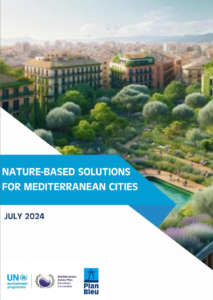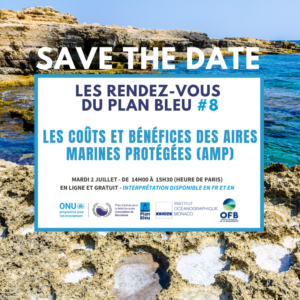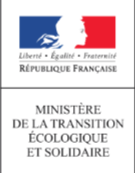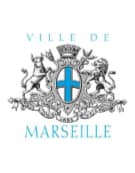ABOUT PLAN BLEU
In 1976, the Mediterranean-rim countries and the European Community adopted the Barcelona Convention to protect marine environment and its coastal areas. The necessity to collectively address development and environment in order to build a sustainable future for the Mediterranean is fully integrated by signatory countries. Plan Bleu is one the Regional Activity Centres of the Mediterranean Action Plan (MAP) of United Nations Environment Programme (UNEP), put in place by France since 1977. Plan Bleu notably produces studies and scenarios for the future in order to raise awareness of Mediterranean stakeholders and decision-makers regarding environment and sustainable development issues in the region. The following Call for Papers, initiated by Plan Bleu, aims to comprehensively explore diverse forms of green economic tools and green public finances in the Mediterranean. To address the pressing environmental issues we face today in the Mediterranean region, new tools are needed, existing ones need to be better used, and traditional principles of public finance need to be revisited and adapted. Through meticulous analysis and evidence-based policy recommendations, Plan Bleu endeavors to heighten awareness, inspire action among policymakers, stakeholders, and the global community, addressing the core elements of such tools and instruments. This Call for Papers seamlessly aligns with a global context emphasizing sustainability and international cooperation. By harmonizing its endeavors with the guidelines of institutions such as UNEP, UNDP, OECD and the World Bank, initiatives such as the Mediterranean Sustainable Development Strategy (SMDD) and European Union taxonomies, Plan Bleu underscores a robust commitment to coherence and convergence of environmental actions across different policy layers.
INTRODUCTION
In the pursuit of sustainable development and environmental conservation, part of the focus is slowly shifting towards leveraging Green Public Finances and Tools as strategic instruments. Recognizing the urgent need to align economic practices with ecological balance, these tools play a pivotal role in fostering environmentally responsible decision-making. Unlike harmful subsidies which contribute to resource depletion and pollution, a theme covered in last years’ Call for Papers, these green initiatives aim to drive positive change. Green economic tools and green public finances are concepts that focus on integrating environmental considerations into economic decision-making and public financial management. They are particularly relevant for Mediterranean countries due to the unique environmental challenges and vulnerabilities faced by this region.
Green Public Finances include, among others:
- Environmental Taxation, which means levying taxes on activities that have negative environmental impacts, encouraging businesses and individuals to adopt more sustainable practices, as well as lowering taxes on activities that have positive environmental impacts and on natural capital. Its objective is to incorporate into the price paid by economic actors the costs associated with negative externalities on the environment (Sainteny, 2010).
- Green Bonds, which are issued to finance projects with environmental benefits, such as renewable energy infrastructure or climate adaptation initiatives.
- Green Budgeting, which allocates public funds to environmentally sustainable projects and programs, ensuring that government spending contributes to environmental goals. The concept has gained traction globally, including in countries like France, as a response to the escalating ecological crisis (Degron, 2021).
Meanwhile, as part of Green Economic Tools one finds:
- Carbon Pricing, which involves putting a price on carbon emissions to incentivize businesses and individuals to reduce their carbon footprint. It can be implemented through carbon taxes or cap-and-trade systems.
- Renewable Energy Incentives, which are financial incentives and subsidies for the development and use of renewable energy sources to promote a shift towards cleaner and sustainable energy production (keeping in mind that such incentives must be carefully planned to avoid environmental damage, as a sustainable blue and green economy requires a balanced approach to minimize negative impacts on marine and coastal ecosystems, particularly regarding offshore wind turbine deployment, industrial electrification, and the use of biomass for energy production).
- Eco-labeling, certifying products and services that meet specific environmental standards, helping consumers make informed and environmentally conscious choices.
- Natural Capital Accounting, which incorporates the value of natural resources and ecosystems into economic planning and decision-making.
Green Public Finances and Tools encompass various stages, from setting clear environmental objectives to integrating eco-financial documentation into budgetary processes. The generation of evidence and policy coherence tools is key, enabling transparent reporting of environmental impacts tied to budgetary decisions. Moreover, an effective governance framework is crucial, linking strategic ecological planning with financial choices on a multi-year basis.
However, national implementations of green budgeting vary in their scope and maturity throughout the world. Challenges persist, particularly regarding the socio-economic consequences of rapid ecological transitions. Also, current approaches to green taxation often reveal a divergence between ambition and reality. Ultimately, the journey towards truly “Green Public Finances and Tools » demands not only fiscal innovation but also a balanced integration of ecological ambitions with socio-economic realities.
As for the specific case of the Mediterranean, the relevance of “Green Public Finances and Tools” lies in the region’s susceptibility to climate change, water scarcity, biodiversity loss and other sustainability challenges. Green public finances can play a crucial role in channeling (often limited) resources towards climate-resilient infrastructure, water management, and contribute to the sustainability dimension of economic sectors. Green economic tools can help address challenges by promoting sustainable practices, reducing carbon emissions, contributing to conservation of resilient ecosystems, and fostering a more resilient and environmentally friendly economy. These measures not only address environmental challenges but also contribute to long-term economic stability.
THEME OF THE CALL FOR PAPERS
This Call for Papers invites researchers to explore new approaches and insights into the realm of Green Economic Tools and Public Finances, focusing on the Mediterranean region. All papers should present evidence-based analyses and offer pragmatic policy recommendations to enhance sustainability and resilience in the area. This can contribute to better implementing UNEP-MAP’s Barcelona Convention and its protocols and be of key support to its Contracting Parties. Papers with different focuses are welcome, proposals may include:
- a Regional (Multi-Country) Dimension. Papers exploring the regional dimension could investigate how environmental finance policies and initiatives are (or are not) coordinated or harmonized across multiple countries within the Mediterranean region. They may examine the challenges and opportunities of aligning diverse national policies and regulations to address common environmental issues effectively. Additionally, research could focus on the role of regional organizations or agreements in facilitating collaborative efforts and resource sharing among member states to achieve shared environmental goals.
- Comparative Perspectives (Country to Country). Such papers could analyze how different countries approach environmental finance and public finance for sustainability in different ways. They may identify best practices, lessons learned, and success stories from one country that could be applied or adapted in another.
- Country-Specific or Intra-National Dimensions. Such papers may examine the local context, including socio-economic factors, political dynamics, cultural influences, and environmental characteristics, shaping the design and implementation of environmental finance policies and initiatives. Research could also explore case studies of successful environmental finance interventions tailored to specific national or territorial contexts, highlighting key factors contributing to their effectiveness and scalability.
A suggested list of seven sub-categories is presented below, which follow international taxonomies and are tailored to the realities of the Mediterranean, it is indicative but not exhaustive. This framework offers a comprehensive coverage of various environmental and socio-economic challenges in the region. It also supports practical approaches to facilitate the transition towards a more sustainable, inclusive and resilient economy, encouraging actionable research and policy implementation.
- Climate Change Mitigation
– Renewable Energy Transition (that also respects other environmental aspects) : Authors are invited to delve into the intricacies of successful policies, economic/financial tools and strategies facilitating the transition to renewable energy sources (but only renewables that do not harm other aspects of sustainable development, such as biodiversity and sustainable tourism). For example, how can governments use renewable energy incentives, such as feed-in tariffs or tax credits, to stimulate investments in (genuinely) clean energy projects? Papers can analyze the economic impact of such incentives, comparing their effectiveness in different Mediterranean countries. Furthermore, financing the renewable energy transition through green bonds may also allow governments to attract private investments for sustainable projects. Overall, papers under this theme must adhere to the following message “yes to renewables, but not anywhere, not anyhow, and not at the expense of other environmental aspects”.
– Innovative and Digital Perspectives : Papers can explore the potential of digital technologies and green digital subsidies to enhance environmental sustainability. Research can delve into the economic outcomes of subsidizing innovative technologies for sustainable maritime practices, such as eco-friendly shipping and ocean energy, and their potential for job creation and economic growth in the Mediterranean maritime sector.
- Climate Change Adaptation
Climate Finance and Adaptation: Authors are encouraged to assess the economic resilience of countries with effective climate finance strategies and explore innovative financial tools for climate change adaptation (keeping in mind that there are “good” and “bad” adaptation strategies). For instance, countries facing rising sea levels can issue green bonds to fund coastal protection projects, investing in infrastructure like seawalls and mangrove restoration. Researchers can analyze the economic impact of such bonds on climate adaptation, considering factors like job creation and property value protection. Meanwhile, allocating green budget funds for community-based adaptation projects, such as resilient housing and early warning systems, is crucial and can be covered by one of the papers. Overall, this category welcomes papers on initiatives to be implemented within the framework of Integrated Coastal Zone Management. It welcomes papers that contribute to shaping a comprehensive understanding of the economic dimensions of “good” climate adaptation.
- Sustainable Use and Protection of Water and Marine Resources
– Water Resource Management: Authors can explore the economic and environmental implications of policies related to water subsidies, including aspects such as aquaculture, sustainable irrigation and desalination. Papers are encouraged to delve into innovative financing mechanisms that promote water conservation and efficient use, drawing inspiration from successful examples globally. For example, taxing excessive water use or promoting water-efficient technologies through environmental taxation can be an economic tool for sustainable water management, especially in countries of the Southern and Eastern Mediterranean who face increased challenges. Papers should also consider highlighting incentives for repairing pipelines, addressing leakage issues that reach up to 80% in some networks. Additionally, promoting the substitution of water-intensive crops with less water-consuming alternatives is crucial for ensuring food sovereignty.
– Sustainable Sectors: Research can focus on how green economic tools can promote sustainability of marine resources in key sectors like fisheries, agriculture, and tourism. Case studies highlighting successful examples of countries incorporating eco-friendly policies in these sectors are welcomed, offering valuable lessons for achieving sustainability. Assessments of the economic implications of environmental taxation in fisheries, agriculture, and tourism contexts can provide insights into promoting sustainability all the while fostering economic growth.
- Transition to a Circular Economy
Circular Economy and Waste Management: Papers focusing on the adoption of circular economy principles in public finances should explore the concrete implications of such strategies. Authors can assess how green economic tools influence waste reduction, recycling efforts, and reducing of urban sprawl, offering practical insights into the circular production and consumption patterns. For instance, eco-labeling for products can encourage consumers to make environmentally conscious choices. Papers can thus potentially explore the economic impact of eco-labeling in the context of circular economy practices, analyzing consumer behavior and market dynamics in Mediterranean countries. Levying taxes on environmentally harmful practices (ex. single-use plastics) and integrating circular economy principles into public budgets (ex. dedicated funds for waste reduction and recycling initiatives) can also be areas that papers can explore.
- Pollution Prevention and Control
Economic and Behavioral Impacts of Environmental Taxation: Papers can delve into the economic ramifications of environmental taxation strategies on pollution reduction (including air pollution) and sustainable practices within the Mediterranean. Papers within this area can assess the effectiveness of various tax schemes, such as carbon taxes or emission fees, in curbing pollution levels. Additionally, researchers may analyze the revenue generated from these taxes and how they are allocated to support pollution control initiatives and sustainable development projects. Papers can also explore how environmental taxation influences behavioral change and fosters innovation in the context of pollution prevention and control, with a specific focus on addressing air pollution in the Mediterranean. Papers that suggest economic tools to finance a Med Nitrogen Emission Control Area (NECA) or to incentivize its adoption are also welcome.
- Protection and Restoration of Biodiversity and Ecosystems
Nature-Based Solutions and Marine and Coastal Conservation: Papers under this theme can delve into the implementation of nature-based solutions and biodiversity conservation strategies in marine and shoreline ecosystems, with a focus on innovative financing mechanisms. Authors are invited to explore how concepts such as biodiversity credits, carbon sequestration, and payment for ecosystem services can be effectively applied to marine environments to enhance ecological resilience and sustainability. They are also invited to investigate how it is possible to decrease harmful subsidies to biodiversity in the Mediterranean context, notably for marine and coastal ecosystems, including in protected areas. Additionally, innovative financial mechanisms to sustainably finance and manage Coastal and Marine Protected Areas (MPAs) can be examined, including the economic viability of funding sources such as conservation fees, eco-tourism revenues, debt for nature swaps, and public-private partnerships. Case studies showcasing successful applications of these innovative financing tools in marine conservation projects are encouraged, providing valuable insights into scalable solutions for addressing environmental challenges in the Mediterranean region. Meanwhile, papers focusing on habitat restoration and rehabilitation efforts can explore specific economic tools that were used for reviving degraded ecosystems and enhancing biodiversity.
- Social Equity, Inclusion and Governance in Green Initiatives
Inclusive Transition to Sustainable Economies: Submissions should focus on investigating the social justice implications of green economic tools. Authors can assess policies that ensure an inclusive transition to sustainable economies, emphasizing strategies for mitigating disproportionate impacts on vulnerable populations. Papers in this category contribute to a holistic understanding of how green economic tools can foster equitable and just transitions. For example, papers could focus on how allocating funds for green job training programs within national budgets can ensure that marginalized communities have access to opportunities in the green sector. Alternatively, other paper proposals may focus on how designing environmental taxes with a progressive structure can address social justice concerns. ensuring that the financial burden aligns with income levels and does not disproportionately affect vulnerable populations. Additionally, papers may assess the effectiveness of global governance mechanisms, including UNEP-MAP (Barcelona Convention and its protocols), in implementing green economic tools and contributing to better social inclusion and environmental sustainability.
ELIGIBILITY
The Call for Papers is open to all experts and researchers working on relevant topics in Mediterranean countries that are Contracting Parties to the Mediterranean Action Plan of the United Nations Environment Programme (UNEP/MAP). If pre-selected, candidates must demonstrate their legal capacity to sign contracts and issue invoices according to the legislation of their country. Researchers from the Southern Mediterranean, including women and PhD graduates, are encouraged to participate.
SUBMISSION PROCESS
Interested researchers are invited to submit by July 30th 2024, the following 2 documents:
- A detailed concept note for the research paper (5 to 7 pages) including:
A cover page (1 page) with:
- The summary of the paper stating:
– the objective of the paper
– the knowledge gap and the value added of the paper
– methodology/approach
– expected results and regional policy implications
- Presentation of the author(s) and the topic of the research as follows:
– Name of the author(s)
– Their Affiliation(s)
– Contact details (including email)
– Address, city and country
– Which of the stated topics of the research they will be addressing
The remaining pages of the concept note should include the following :
- Statement of research stating the problem addressed, brief review of the literature, the knowledge gaps the paper will address and a preliminary outline.
- Research methodology stating the research question, the hypothesis to be tested, the methodology (e.g case studies, empirical evidence, etc.) and the rationale for using the selected methodology.
- Expected results and policy implications : how will the outputs and results of the research translate into policy recommendations. Recommendations must be linked to the analysis, be specific and operational.
- The CVs of the author(s) including list of publications
EVALUATION AND SELECTION
A minimum of 7 proposals will be selected by Plan Bleu. Proposals will be evaluated by Plan Bleu and selected based on objective criteria including:
- a concise and structured presentation of the research objectives and of the Paper,
- the relevance and originality of the topic and its policy relevance and,
- the inclusion of an indicative list of references.
Other criteria: Final selection may be subject to adjustments to take into account regional, subjects and gender balances. Previously published papers or those already accepted for publication will not be accepted. All submitted drafts will go through a plagiarism-checking process. No single author may submit more than two papers, whether independently or jointly with others. Draft papers should be submitted in English. Submissions that are not consistent with the above guidelines will be excluded.
EXPECTED OUTPUTS FROM SELECTED PAPERS
- Author(s) of the selected concept notes will be asked to submit a first draft (15-20 pages) of the research paper by December 6th ahead of the Plan Bleu Conference.
- Selected authors will be invited to present their Papers to the Plan Bleu Conference on “Environmentally Friendly Economic Tools and Finances”, taking place in early 2025 (Marseille). Authors will get feedbacks and inputs from other experts and researchers, to be used to finalize the Paper. Papers will be adjusted in light of the debates held at the Conference and/or consolidated based on the feedback received.
- Following the Plan Bleu Conference, authors will be expected to submit a revised and final version of their Paper which incorporates the feedback received. The final draft shall be submitted by early-April 2025. The final version of the paper will be peer-reviewed and if successful, will be published in the Plan Bleu research papers series and Edited Volume.
REMUNERATION
- Each Paper will be awarded with €2,500 gross. A first payment (50%) will be provided after successful selection of the draft. A second payment (30%) will be provided on receipt of the first draft of the paper. A third (final) payment (20%) will be provided after the final draft is submitted, provided that the peer review is positive and that the Paper meets the established quality standards.
- Flights and accommodation to the Plan Bleu conference will be covered for selected authors (one author per paper). Coverage of the travel expenses is restricted to the geographic area covered by Plan Bleu (21 Mediterranean Countries of Barcelona Convention).
SUMMARY AND TIMELINE FOR THE CALL FOR PAPERS
- July 30th : Deadline for Submission of Draft Concept Notes
- mid-August : Review and Selection Process
- early September : Announcement of selected Concept Notes, Contractualisation and launching work on the papers
- October/November : Travel arrangements for authors of selected paper (one author per paper) – Including visas (when applicable)
- December 6th: Submission of first draft of selected papers (15 pages)
- January/February 2025 : Presentation at the Plan Bleu conference
- early April 2025 : Submission of the final version of papers (maximum 25 pages)
- May 2025 : Completion of the peer-review process
- September 2025 : Publication in Plan Bleu Edited Volume
CONTACT DETAILS
For any inquiries related to this call, please contact
Constantin Tsakas, Program Officer, Socio-Economic Analysis and Blue Economy
[email protected] with the subject line: Plan Bleu Call for Papers.















